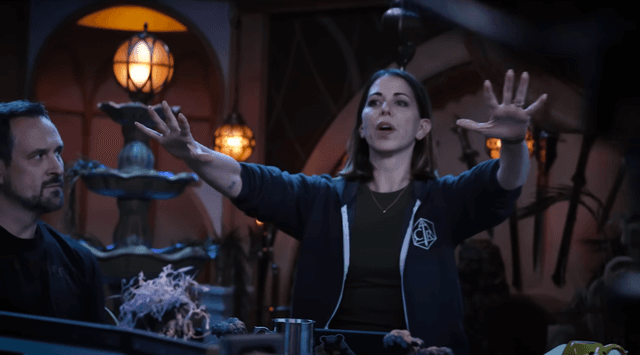If you click on a link and make a purchase we may receive a small commission. Read our editorial policy.
Secret Invasion failed to deliver at an uncertain time for Marvel Studios
Less existential threat, more "this summer's pointless punch-em-up"

Spoilers for the ending of Secret Invasion below!

Disney+’s Secret Invasion series is over — we told you everything you needed to know about the final episode right here, at least in terms of plot — and it ended with something closer to a whimper than a bang.
If the first episode hinted at a story global in scope with an unknowable, intangible threat, the show’s finale reduced everything down to two villains who could be overpowered by physical force… which arguably tells you everything you need to know about the series as a whole.
If you’re anything like me, you’ll have noticed that Secret Invasion kept shrinking as the show continued. The first two episodes were close to an hour long — 54 minutes and 57 minutes, respectively — but the third was just 43 minutes. The final episode was 37 minutes, down from the previous week’s 38. It feels like a curious metaphor for the series’ seeming dwindling ambition, which appeared to get smaller and smaller with each successive episode, going from a series teased as having repercussions throughout the entire MCU to something that… effectively changed very little by the time the show was over. (There are two primary elements that are likely to be mentioned elsewhere: the death of Maria Hill in the show’s first episode, and the newly xenophobic commentary by the President of the United States in the final episode — and even then, we already know that he won’t be President by the time Thunderbolts comes out.)
Otherwise, it’s hard to shake the feeling that very little actually happened in Secret Invasion. Sure, Gravik’s plan was thwarted, but… it was never really much of a plan in the first place, and it became less of one as the show headed into its final act, going from “let’s kill all the humans and take over the planet” to “let’s you and him fight!” Moreover, the Skrulls en masse end the show in precisely the same place as they were when it started, hoping to find a planet to escape to, away from Earth, where they’re unwelcome and have to disguise their true nature.
None of the big Marvel heroes showed up — Nick’s “we have to solve this ourselves” rationale in the last episode doesn’t hold any water, given that he’s dealing with potential world war as the result of alien interference; he might as well have said, “We can’t afford anyone else” for all the good that explanation gave — and by the time the credits rolled on that final episode, with Nick and his retconned wife wandering into the spaceship as everything blurred into insignificance, I found myself actually saying out loud at the television, “Wait, is that it?”
It didn’t help that the final episode, “Home,” also featured some unconvincing special effects as well as genuinely odd direction, framing, and editing choices in its climactic conversation between Gravik and “Nick,” to the point where it looked as if the whole thing has been hastily assembled from incomplete footage. That final episode is, honestly, very strange indeed.
Secret Invasion arrived at an important time for Marvel Studios — Guardians of the Galaxy Vol. 3 impressed critics and fans alike, but that has proven to be an outlier after the relatively tepid response to Ant-Man & The Wasp: Quantumania, and Thor: Love and Thunder last summer. With the theatrical slate getting pushed out because of strike-related delays (and, even before that, The Marvels got pushed a few months), Secret Invasion was perfectly placed to remind fans just why they loved the MCU… but after its six episode run, it might have simply underscored a feeling that Marvel is past its prime.
If nothing else, I guess Secret Invasion did introduce a strange MacGuffin that lets Emilia Clarke be a Super-Skrull…
Follow Popverse for upcoming event coverage and news
Find out how we conduct our review by reading our review policy
Let Popverse be your tour guide through the wilderness of pop culture
Sign in and let us help you find your new favorite thing.
















Comments
Want to join the discussion? Please activate your account first.
Visit Reedpop ID if you need to resend the confirmation email.